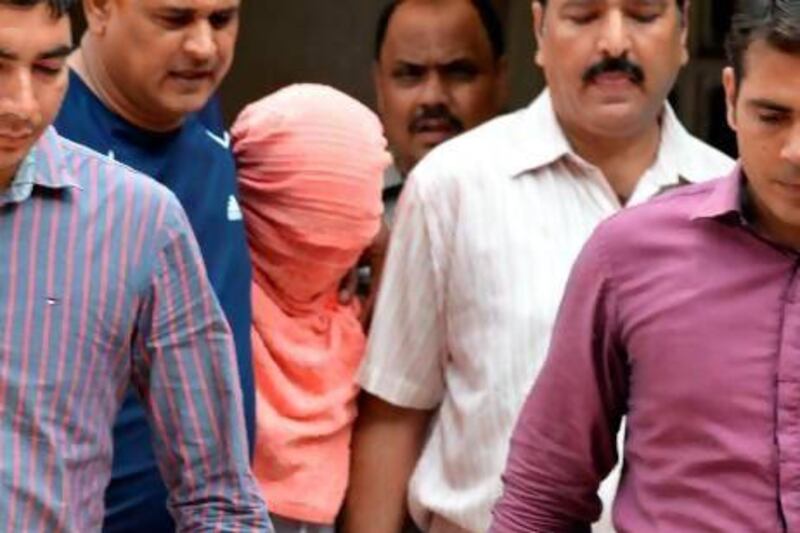NEW DELHI // A teenager was convicted and jailed for three years yesterday for his part in the gang rape and murder of a young woman who was attacked on a moving bus in Delhi in December.
The youth, who was 17 at the time of the assault, received the maximum penalty available for a juvenile offender, said Anil Sharma, the chief investigating officer in the case. The sentence includes the time he has spent in prison since his arrest and will be reviewed, Mr Sharma said.
The victim's mother emerged from the court in tears.
"He got just three years ... from December onwards, he has been given three years," she said. "He should get an adult sentence."
The victim's father said the family would fight for a harsher sentence.
"It's a crime to be born a girl in India," he said. "Girls are not safe in India."
Outside the court, about 20 protesters also demanded a harsher punishment, screaming "Hang the juvenile too" and "We want justice".
Yesterday's guilty verdict, announced in a New Delhi court overseen by the Juvenile Justice Board of India, was the first conviction in a case that ignited protests across the nation. Four other men, all adults, are still on trial. A sixth defendant was found dead in his jail cell in March.
The protests triggered by the gang rape turned violent, forcing the government to pass stricter laws in April to address issues of violence against women. These included up to 20 years in prison for rape, and the death penalty for a repeated rape offence.
The victim, a 23-year-old physiotherapy student, cannot be identified under Indian law. She was with a male friend when they were tricked into boarding an off-duty bus on December 16 after an afternoon showing of the film Life of Pi.
The men raped the woman and used a metal bar to inflict massive internal injuries. Her friend was also beaten and they were both stripped naked before being thrown off the bus. The woman died from her injuries on December 29 at a hospital in Singapore.
The supreme court this month cleared the way for the principal magistrate, Geetanjli Goel, to deliver the verdict on the teenager's case. It had been delayed after a petition was lodged in the court by an opposition politician for a review of the juvenile law, arguing suspects of age 16 and older who are accused of serious offences should be tried in adult courts.
The case also caused a public outcry to lower the age at which people can be tried as adults from 18 to 16. The parents of the victim said they wanted the teenager to be charged as an adult and he should receive the death penalty.
But K Swarna Kumari, the secretary of Mahila Action, a non-profit group in Andhra Pradesh that works with women and children in slums, said she opposed calls to lower the juvenile age.
She said children in the justice system were overwhelmingly from poor, broken families, who had been subjected to abuse and witnessed domestic violence.
"When you live in poverty in the slums as a child, you see a lot, you face a lot," she said. "If you are poor from the rural areas and sent to the city to work, then also you face a lot of abuse.
"It is a failure of society that we cannot protect these children. If they commit a crime, it is a reflection of our failure."
[ sbhattacharya@thenational.ae ]
* With additional reporting by Agence France-Presse





